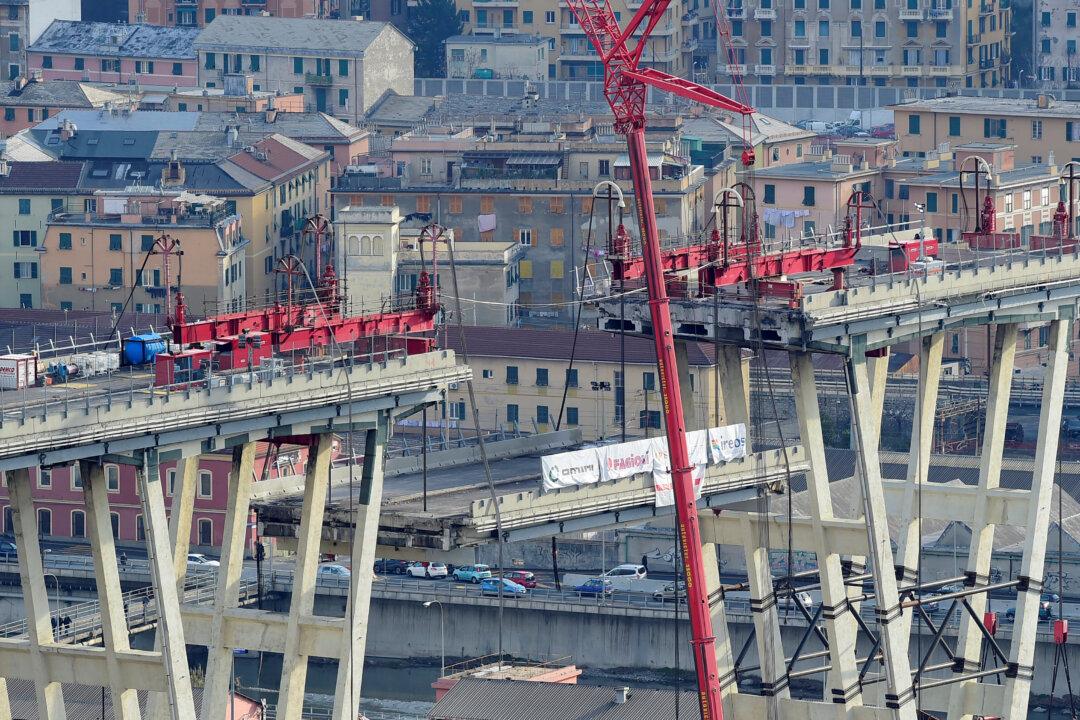GENOA, Italy—When work started this month on dismantling the motorway bridge in Genoa that collapsed last August, killing 43 people, the Italian government said it was a symbol of revival.
But another site a short distance away is more representative of infrastructure development in Italy, with zero activity and the land undisturbed.





